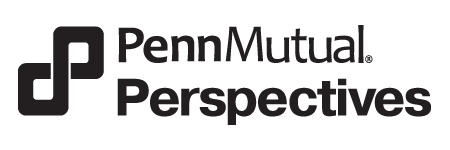Financial Wellness: Get Your Wealth on Track
It’s natural for people to dedicate time and effort toward their physical wellbeing – eating healthy, spending time at the gym, and taking up hobbies or activities that promote a balanced lifestyle. But, what about your financial wellbeing? Financial fitness is just as important but is often disregarded by many Americans.
Here are four actionable takeaways that can help put you on the track toward financial success.
- Take inventory. Calculate and review all outstanding debt, and take inventory of all resources and assets that you have in place. Also, look at how your budget is affecting your lifestyle – what percentage of income is dedicated toward emergencies, and what do your monthly expenses look like? A full financial inventory allows you to understand where you stand and what changes you need to make to meet long-term financial goals.
- Look for ways to save, and consider reallocating resources. Aim to reduce credit card debt, refinance mortgages, or reallocate money from one savings vehicle to another (if there is a higher return or less risk). Check in on your progress toward long-term goals and understand that plans are adaptable. Any life change (e.g. promotion, job relocation, marriage, etc.) warrants a check-in/review to ensure that plans are flexible to adapt to any situation.
- Protect your plans. After you have taken full inventory of assets, and you are in line with long-term objectives, make sure to protect these plans. Most Americans are dramatically underinsured when it comes to life insurance and disability insurance. Work with a financial professional to start a policy or make sure that your current policy reflects your needs. Something you put in place 10 years ago might be out of alignment with your current situation.
- Allocate into “buckets.” Individuals or couples should allocate funds into three buckets – an emergency reserve bucket with at least six months to one year of income in a risk-free account, a midterm money bucket, which houses savings for college funds or funds for larger purchases, and a long-range money bucket, which focuses solely on retirement.
It’s also important for employers and employees to take advantage of resources where available. Some agencies offer financial education seminars, and perhaps there are similar opportunities in your area. Employers might find that inviting a financial professional into the office to provide educational seminars may help to increase participation in benefits programs, assist with corporate retirement plan education, and more. From an employee standpoint, such courses teach individuals how to increase savings, explain the importance of allocation assets to reduce risk, provide guidance on investment management, and more.
No matter your current financial situation, furthering your financial education can go a long way in meeting short- and long-term goals. Financial fitness is the key to an overall healthy lifestyle. By making small changes now, you can set yourself up for a strong financial future.
This post is for informational purposes only and should not be considered as specific financial, legal or tax advice. Depending on your individual circumstances, the strategies discussed in this presentation may not be appropriate for your situation. The information in this material is not intended as tax or legal advice. Always consult your legal or tax professionals for specific information regarding your individual situation.
4680940CC_MAY24






